
In Peru, one could look out the plane window and see the endless stretch of the Andes mountain range. In the Amazon, it was the endless stretch of rainforest. It was flood season and it was evident from above. River houses dotted the scenery. The canopy was an unbelievable sight. It’s hard to believe that there is a city in the middle of it all. But there, 2 million people live, World Cup matches are going to be played, and people are flying in for tours of the Amazon.
I should say that upon arrival in Manaus, I tried to get money out of the ATMs but failed. I later found out, my debit card had been blocked due to it being copied in a rigged airport ATM in Rio, one of only two which worked with foreign debit cards. A Spanish girl I befriended at my hostel told me she had her money stolen and turns out, she had used the very same airport ATM I had used. Checking my account revealed nothing stolen, which was a relief, but nonetheless, losing the use of my Schwab debit card was a big loss, as their “no foreign transaction fee” perk was immense. Luckily, I had a non-Schwab backup card, except I’d be paying $10-15 each time I take money out.
The city of Manaus is more functional than it is pretty. It was hot and humid. At the tour company (Amazon Backpackers Tour), I met the guy who’d been corresponding with me via email the past few months, Nonato. I also met the big boss, Claudio.
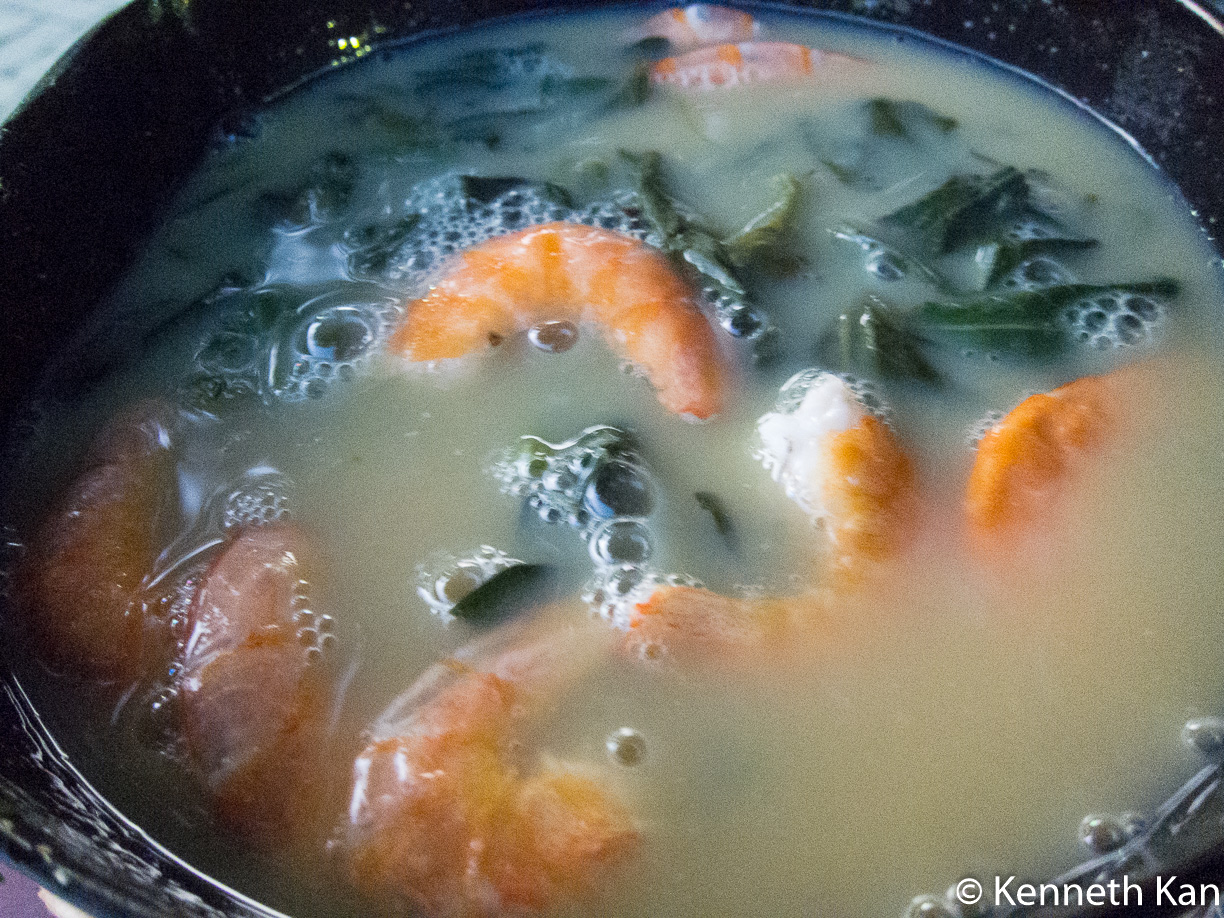
ABT told me that they had no credit card machine and asked me to get cash. So, incurring those evil transaction fees, I paid up. I later found out from my tour group mates that ABT does have a credit card machine; they just preferred not to use it due to fees on their end. Not a good sign when your tour company starts lying to you like that.
Manaus had very few dorms options so I opted to stay in a simple hotel next door, for an inflated World Cup price.
Several people in my tour group had different packages, ranging from 6d/5n to 2d/1n. The longer you stayed, the deeper you went into the jungle. I opted for 3d/2n. I was given the option of staying longer if I chose to later, and paying the difference when I get back. But believe me, 2 nights in the Amazon is plenty and I was thankful I didn’t bite.
We took a van to the docks, a ferry across one of the river channels, another van for 2 hours to the smaller river, and then a smaller open-top small-engine wooden boat to our lodge. All in all, it took about 3 hours to journey from Manaus city to our lodge. (As a side note, for some reason, old VW hippie vans are popular in these parts.)
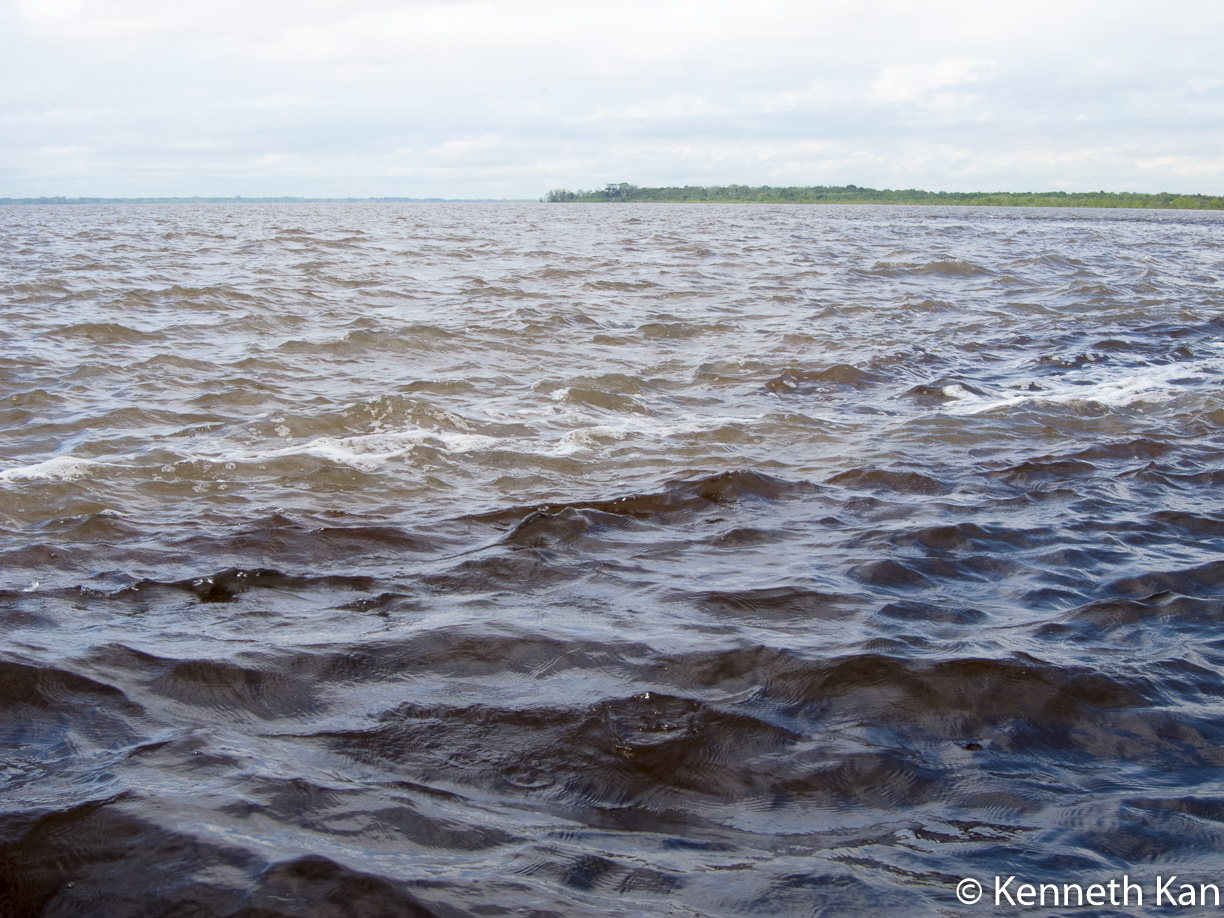
We arrived at our jungle lodge, dropped off our things (I packed a small backpack with some clothes, my point and shoot, basic toiletries, insect repellent, poncho, and bag raincover. I chose not to bring my good camera as I was worried about the weight and being caught in the rain.) We had a simple lunch (pasta, rice, beans, fish, chicken, salad) and waited until 3 pm. Our guide was not very communicative about our plans and we had to coax it out of him. He looked overwhelmed, trying to handle a larger than normal group but also trying to juggle logistics for all the varying tour packages.
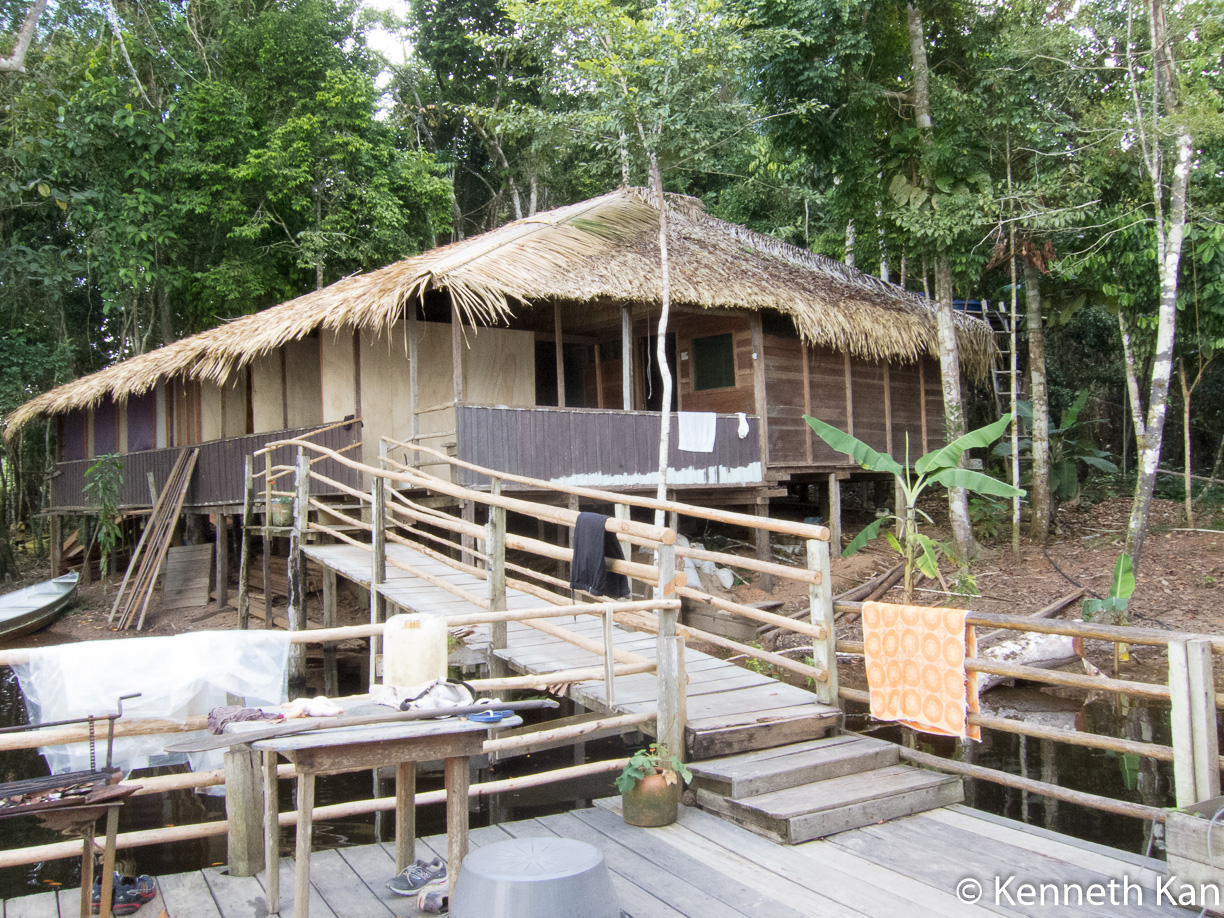
After lunch and about 2 hours doing nothing, we took a boat ride to go animal-spotting. Apart from a sloth, the animals weren’t visible from the river. They were all deep inside. It made for an uneventful ride. The highlight was when we stopped our boat around 5:30 pm to enjoy the sunset and to observe a massive flock of egrets and cormorants fighting for sleeping space on a dead tree jutting above the waters.
That night, we set out to go look for caimans. This is done by flashing our lights around water near the river banks until we saw the reflection of their eyes, an eerie orange flow, as they floated quietly. Our guide occasionally clapped his hands in deliberate manner, 3 times, and then made caiman noises, which was supposed to simulate a caiman telling other caiman “Hey, found some food, come have some.” We heard a few replies from a distance, and based on their tones, our guide could tell some were big ones. Like many of the Amazonian hunters, they were nocturnal, quiet, elusive and hard to spot in the darkness, spread out in the vast amounts of space and water, hidden under cover of vegetation in the waters. We settled on catching a baby, which we all took turns to hold.
At the jungle lodge, there was electricity and running water, just enough for basic needs. It had rooms, each shared by 3-4 people. I shared mine with an American father-son team of videographers, who were there for personal pleasure and also to shoot a promo video for ABT. Sleeping at night was difficult as it was so hot. The key in those situations is to move as little as possible.
In the morning, we went on a jungle-hike. The jungle was even hotter and more humid. It was dense with vegetation of all sizes. Mosquitos were a pain, as were ants. They both bit through clothing. Insect repellent helped with the exposed skin but I wish I also applied it to skin under my clothing. (As I write this, my legs, especially the area under my socks, are covered with itchy ant bites.)
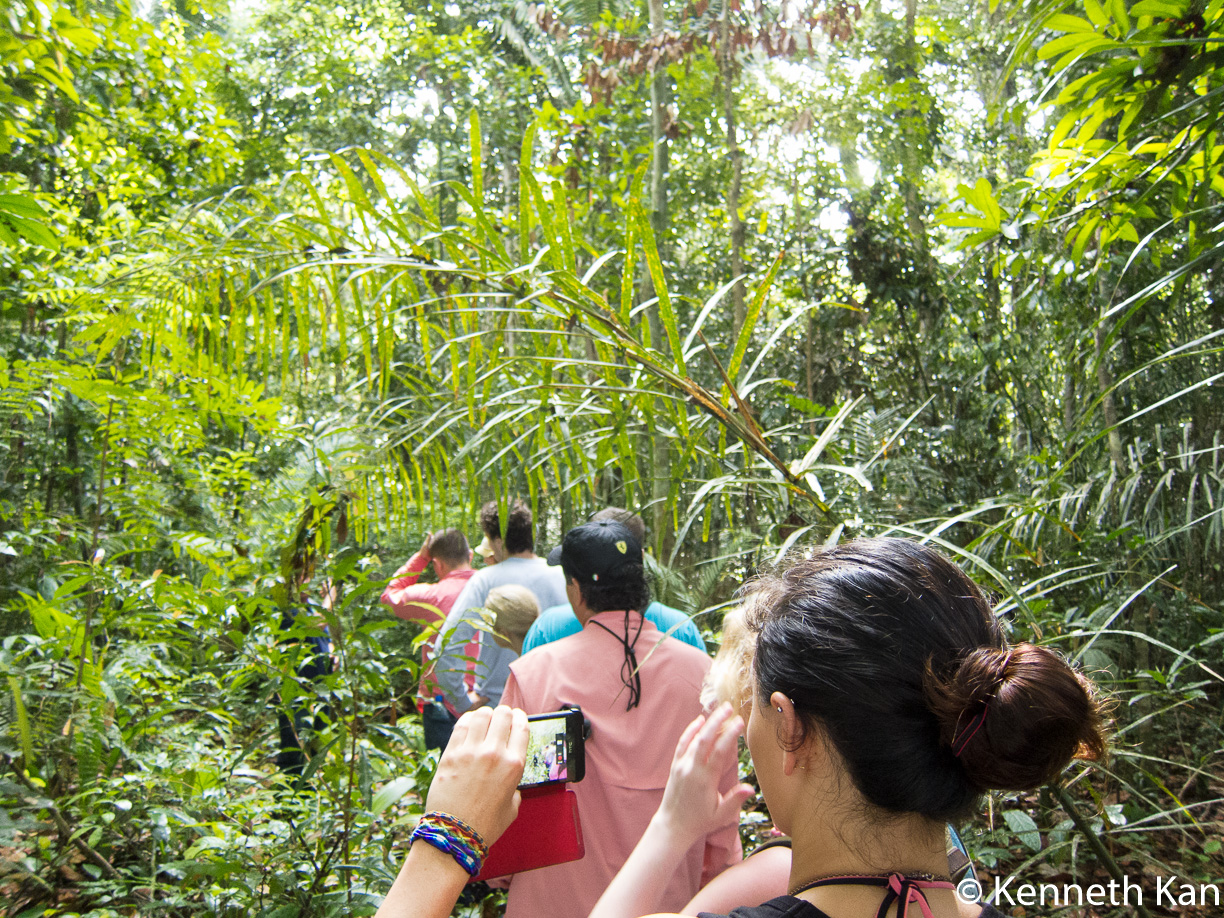
As it was flood season, animals weren’t as visible. This is because the water came to them, so they didn’t need to venture very far out, exposing themselves. Instead, they hid, high up in the trees hidden by other trees, fleeing at the slightest hint of human scent or sounds. They were also mostly nocturnal hunters, as the days were too hot to be outside. This was disappointing but out of our control. If we saw anything, we saw from a distance and not for very long. If your mission was to see plenty of animals, you would’ve been disappointed by the Amazon. The jungle doesn’t work the same way as the Galapagos Islands, which is an animal-watchers paradise. For these animals, survival in the jungle meant being quick, being cunning, being quiet, being elusive, and being paranoid. Throughout my time there, we did see a sloth (high up on a tree, by the river), a few monkeys swinging from trees high above (and smelled their piss, which was a sign of them being nearby), insects (tarantula, scorpion-spider, both of which look menacing but are actually harmless), a few small caiman (we actually held and played with a baby caught by our guide), and several birds (egrets, toucans, herons, parrots). Unfortunately, we did not see anacondas. I even missed piranha-fishing, which was supposed to be part of our Day One itinerary but our guide messed up and forgot about it, which everyone was ticked about.
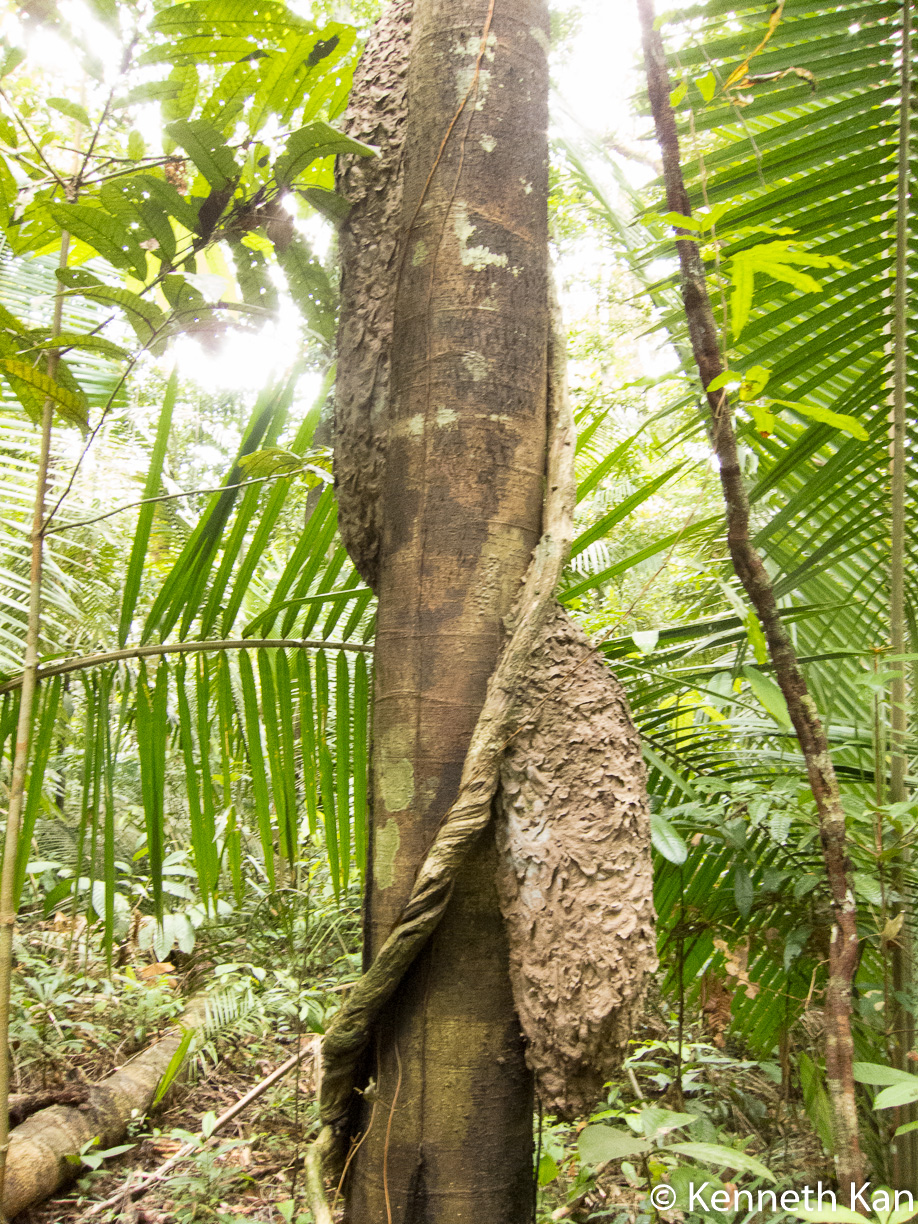
After our jungle hike, we got back to the lodge and proceeded to strip down and air our clothes. Our guide told us we’d have ants and ticks on our clothing so it was best not to bring them into our rooms and mix them with our things. Some of us followed our guide, in a boat, to the middle of the river, and took a swim. It also started to rain.
Swimming in the Amazon, under the rain. I loved every moment of it.
The next day, we set off to the “real” jungle, a 2 hour slow-boat ride away. On the way, the rain came again and the open-top wooden boat started to fill with water. After fumbling with my poncho and putting a rain cover onto my backpack, I helped scoop out water from the boat. I couldn’t help thinking that the Amazon really loved us and wanted to give us The Real Experience.
In the jungle, we slept in hammocks, under mosquito nets, with only a hand-made roof over our heads. We had a different guide in the jungle, a much better one than the first day. This guy was friendly and enthusiastic about sharing his knowledge of the Amazon.
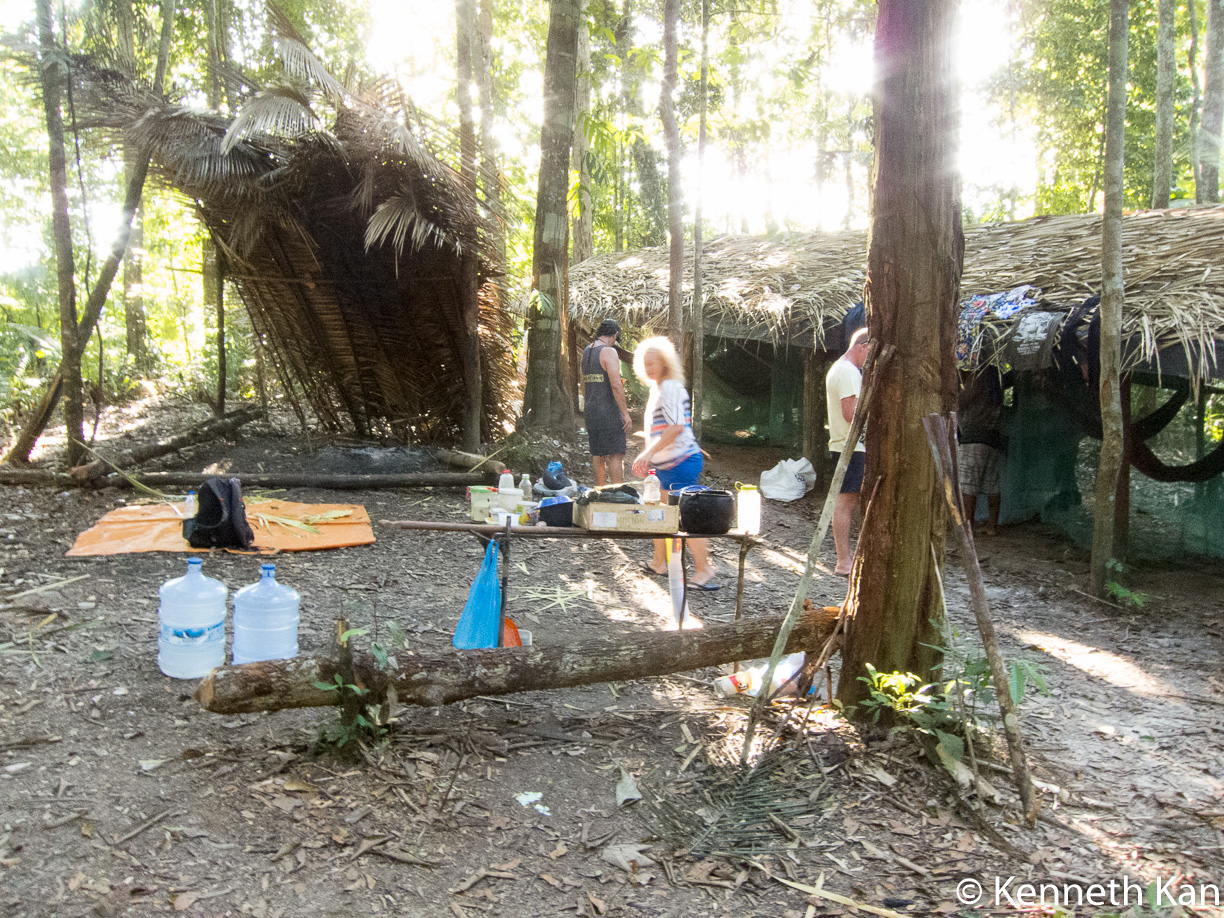
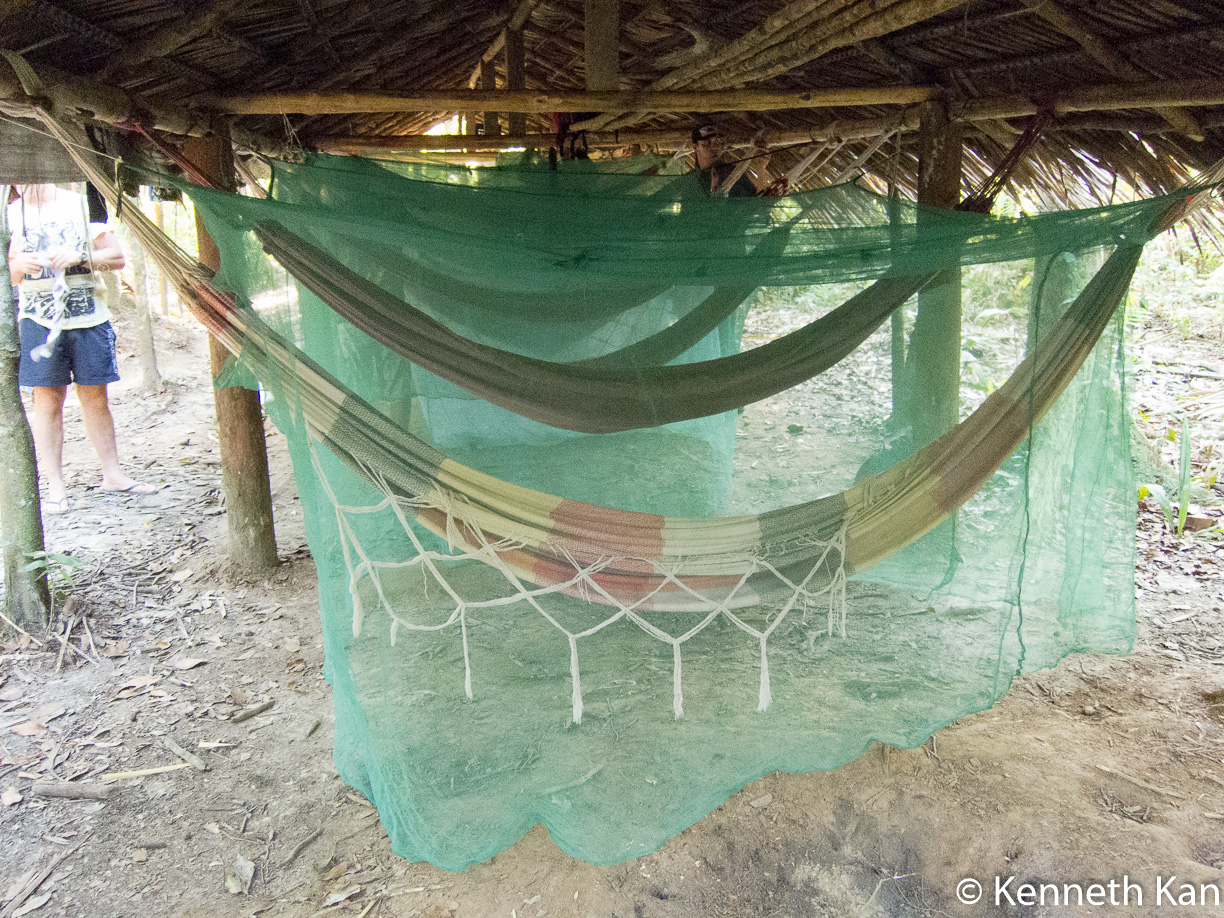

We had rice and chicken for dinner, which were cooked over our campfire. The plates were washed in the river, a bit disgusting considering it’s a river and who knows what kind of bacteria is in it but that’s what happened and we ate anyway. At least we had clean bottled water to drink.
There was little to do at camp at night so we convinced our guide Marcelo to take us out for a boat ride. During the ride, he shared stories of him once dealing with a 6-meter-long anaconda, and his encounter with a mother caiman when he tried to catch her babies, forgetting she was nearby, standing guard.
Sleeping that night was difficult. It was 8:30 pm and with little else to do, we retired. I woke up at 1 am. It was so dark in the jungle, I couldn’t even see my hands if I put them in front of my face. The jungle was playing its nocturnal music and I listened. At one point, I heard the sound of strong winds. Turns out, they were howler monkeys. It took me a few hours to fall back asleep. It was a very long night.
In the morning, we had a simple breakfast of coffee and dinner rolls. We exchanged stories of how our nights went. Apparently, some guy’s hammock detached from its hooks and he fell onto the ground. Many people heard it but surprisingly, I didn’t. Some people also reported hearing someone’s iPhone say “I’m sorry, I cannot connect you to the internet”, which everyone laughed about.
A short visit to an Amazonian local’s wooden river-home was our next stop. I was disappointed because I had thought we’d be going to visit a tribal home of some kind where people still ran around with leaves covering their private parts but I suppose all are found deep into the Amazon forest, away from peering tourist eyes.
For many, they had another night or two but for me, that was the end of my trip and I was taken back to the lodge, along with a few others. While the rest stayed another night at the lodge, I was taken all the way back to Manaus. Throughout my trip, I did not do any piranha fishing, one of the tour’s selling points for me but I resolved to not let it bother me too much. I just told myself “I’ve seen piranhas before” although in aquariums and not in the Amazon.
Back in Manaus, I had a word with the owner, Claudio. I don’t know if he and Nonato felt bad but the next day, I was in the hotel next door, minding my own business surfing the net, when Nonato came by and invited me to his brother’s place for a birthday party. It was his (Nonato’s) birthday that day. I gratefully accepted.
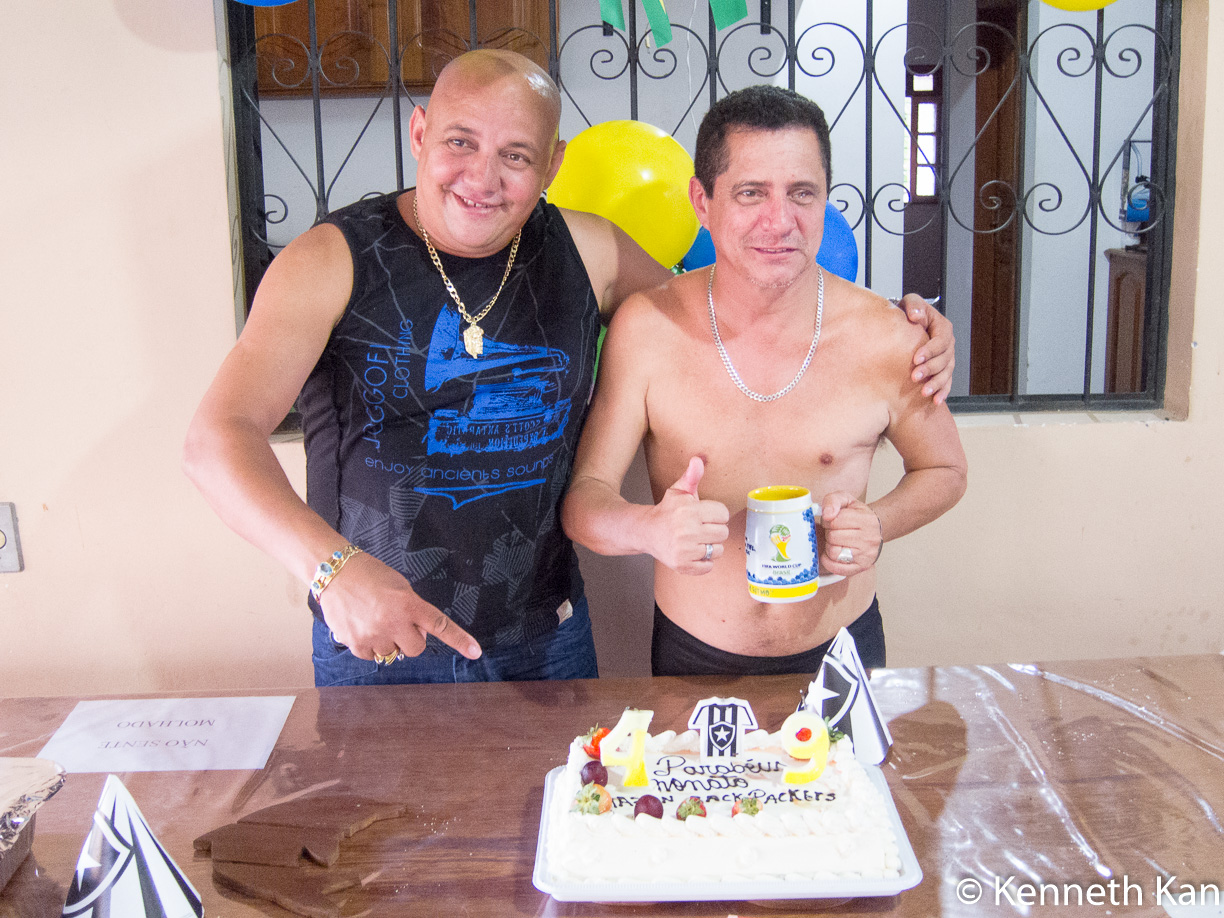
Claudio gave me a ride to the party. Although only Nonato and Claudio spoke any English, I enjoyed myself at the party. I tried to improve my Portuguese by speaking to Nonato’s daughter, who I learned has been learning English for 3 years. In return, I helped her with her English.
But in the end, I think Manaus and the Amazon kicked my ass in many ways. Overpriced tour, overpriced hotel, hot and humid weather, few things to do within the city, and few food options. I couldn’t wait to get out of there. A part of me wants to return within the next 10 years during the dry (and best) season, which is the months of October and November but for now, it’s safe to say, I won’t be returning anytime soon.